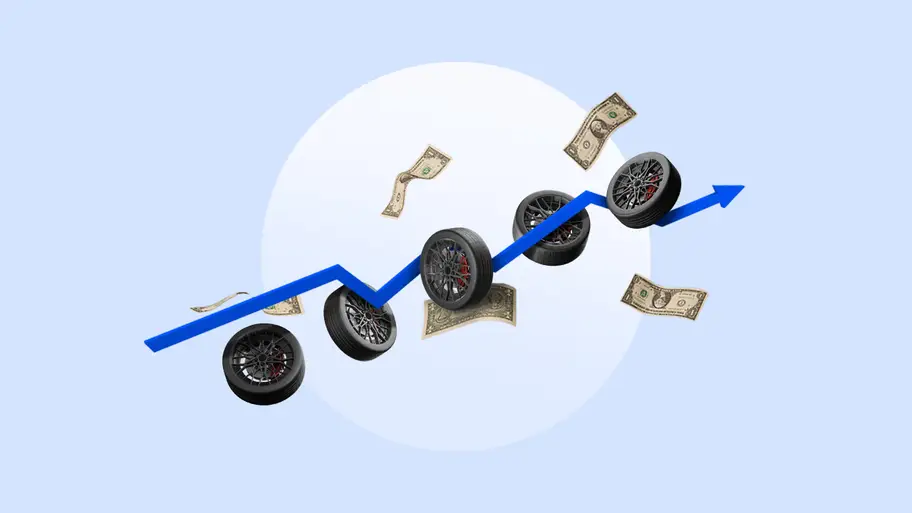The Impact of Car Loan Titles on Your Financing Options
Navigating the world of car financing can feel overwhelming, especially when it comes to understanding car loan titles. Whether you're a first-time buyer or an experienced driver looking for options, knowing how your vehicle's title impacts your financial decisions is crucial. Car loan titles aren’t just paperwork; they hold significant weight in determining your financing opportunities and protecting your investment. From securing loans to maintaining good credit, there are countless factors at play that can shape your experience on the road ahead. Join us as we delve into the intricacies of car title loans and explore their far-reaching effects on your financing choices!
What You Need to Know About Car Title Loans
Car title loans are short-term loans that use your vehicle as collateral. This means you can borrow a sum of money while still driving your car. It’s an appealing option for those who need quick cash and have limited access to traditional financing routes.
However, it’s essential to understand how these loans work before diving in. Lenders typically assess the value of your vehicle and offer a loan based on that amount, often ranging from 25% to 50% of the car's worth. The interest rates can be quite high, making it crucial to factor in repayment capabilities.
One key detail is that while you hold onto your car during the loan period, failing to make payments might result in losing ownership if the lender repossesses it. Therefore, carefully considering your financial situation before committing is vital.
Also noteworthy is that title loans may not report positively to credit bureaus unless explicitly stated otherwise by the lender. This could affect your credit score if you're unable to pay off the loan within its term or miss payments altogether.
Understanding Car Title Loans
Car title loans are a type of secured loan where the borrower uses their vehicle as collateral. This means that your car’s title is handed over to the lender for the duration of the loan. It’s an option often sought by those needing quick cash, especially when traditional credit routes seem elusive.
The amount you can borrow typically depends on your vehicle's value and condition. Lenders usually assess factors like age, make, model, and mileage to determine this. Unlike conventional loans that require good credit scores, car title loans may be accessible even if your credit history isn't perfect.
Interest rates can vary significantly from one lender to another. Borrowers should carefully review terms since high rates could lead to financial strain down the road. It's crucial not just to focus on how much money you can get but also on what you'll owe in total after repayment.
One key aspect is that defaulting on a car title loan may result in losing your vehicle. That risk makes it essential for borrowers to evaluate their ability to repay before committing.
Real-World Example of a Car Title Loan
Imagine Sarah, who faces unexpected medical bills and finds herself short on cash. With limited options, she decides to explore a car title loan. She owns a reliable 2015 Honda Accord that she values at around $10,000. After researching local lenders, she discovers one offering loans based on the vehicle’s equity.
Sarah takes her car to the lender for an appraisal. The lender assesses its condition and agrees to offer her a loan of $6,000 with a reasonable interest rate. To secure the loan, Sarah hands over her car title while retaining possession of her vehicle during repayment. This arrangement gives her quick access to funds without losing mobility.
Over the next few months, Sarah makes regular payments on time while using the money to cover her expenses. The process is straightforward; however, it requires careful planning as missed payments could lead to repossession of her car—a risk Sarah keeps in mind throughout.
Once she repays the full amount plus interest, the lender promptly returns the title back to Sarah. She feels relieved knowing she navigated this financial challenge successfully while keeping ownership of her beloved Honda.
How Car Loan Titles Affect Your Financing Choices
Car loan titles play a crucial role in shaping your financing options. When you take out a car loan, the lender places a lien on the title of your vehicle. This means they have legal rights to it until you've paid off the debt. If you're considering borrowing against your vehicle, this lien can limit potential lenders.
If you want to refinance or seek additional loans, having an outstanding lien may complicate matters. Some financial institutions might hesitate to extend credit if they see existing liens on your title. It signals risk and could lead to higher interest rates or unfavorable terms.
Moreover, different types of car loans come with varying implications for your title. For instance, traditional auto loans differ from title pawn loans in terms of how much control you retain over the vehicle itself during repayment periods.
Understanding these nuances is vital for informed decision-making when securing financing options related to your car's title. The state laws governing titles also vary widely and can affect resale value or any future lending opportunities as well.
Can Car Loan Titles Hurt Your Credit?
Car loan titles can have a significant impact on your credit when not managed properly. When you use your vehicle as collateral for a loan, the lender places a lien on the title. This means they have legal rights to the car until the debt is fully repaid. If you miss payments or default, this could lead to repossession.
A repossession affects your credit score negatively and can remain on your report for up to seven years. Lenders view it as a sign of financial irresponsibility, making future loans harder to obtain. Even if you're able to keep your vehicle by catching up on missed payments, having an active lien can still complicate matters.
Moreover, taking out multiple car title loans in succession often signals financial distress. Each new inquiry into your credit adds another ding against it. Potential creditors may see repeated borrowing as risky behavior.
On top of that, late or missed payments will show up on your credit report too. With each slip-up, you risk further damaging your score and limiting future financing options.
The Process of Obtaining Your Car Title After Paying Off a Loan
Once you've paid off your car title loan, you may wonder what comes next. The process of obtaining your car title back is usually straightforward but can vary depending on the lender and local regulations.
First, ensure that all payments are completed as per your agreement. Check for any outstanding fees that could delay the release of your title. Once everything is settled, contact your lender to request a copy of the lien release document. This document proves you have fulfilled your payment obligations.
After receiving this document, visit your local Department of Motor Vehicles (DMV) or equivalent agency in your area. You'll need to present the lien release along with identification and possibly other documents related to vehicle registration.
Some states allow you to complete this process online or via mail; however, visiting in person often expedites matters. After processing, you'll receive a clean car title free from any liens—allowing you full ownership without any encumbrances.
Ensuring you're aware of this entire procedure will help eliminate any confusion once you've cleared out that debt and regained control over an essential asset like your vehicle.












.png)

 English (CA) ·
English (CA) ·  English (US) ·
English (US) ·  Spanish (MX) ·
Spanish (MX) ·